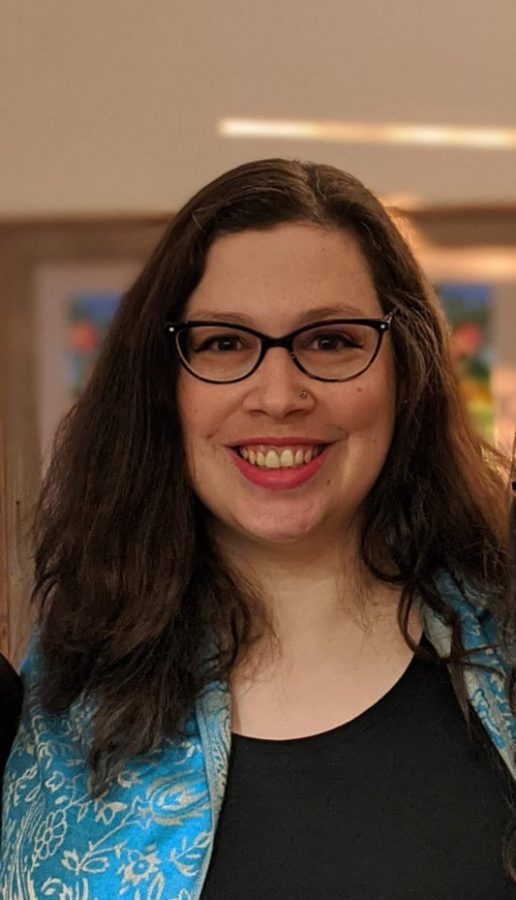Breaking the stigma: Autism spectrum disorder
October 8, 2021
“Autism is not only how our brains operate, but it’s also our culture. It helps shape who we are and why we are the way we are,” said alumna Devin Beach, founder of a local community of autism activists, B. Heard, B. Strong, B. Proud.
As World Mental Health Day approaches on Oct. 10, this community seeks to break down the stigma of autism. Autism spectrum disorder is described in the Diagnostic and Statistical Manual of Mental Disorders-5 as a neurodevelopmental disorder with “impairments in social communication” and “restricted, repetitive patterns of behavior.”
“To say that I am Autistic is an act of empowerment,” Beach said.
Beach said her favorite aspect of being on the autistic spectrum is “the fellowship of the autistic community.”
Beach said finding a sense of community helps autistic people see that they can be successful. People with varying degrees of autism are able to connect through the community, but face different challenges.
“It helped me immensely to find out I was Autistic,” Beach said. “It’s really key to develop those relationships and to find other people who are like you.”
Beach said a diagnosis doesn’t always make things worse for the person, and that it can provide an outlet for connection.
“Taking the disorder and saying ‘This is a horrible thing that you have, and we just want to treat this or somehow remove this part of you and have you act as neurotypical as possible,’ that’s not what it should be,” Beach said. “People should be accepted as they are, not some watered-down attempt to make them blend into society.”
One challenge facing the community is unequal treatment of individuals who are high versus low-functioning, according to Beach.
“If you are deemed low-functioning, your humanity is ignored. You are segregated in school,” Beach said.
Beach said that to be high-functioning often involves telling others you need help with something and not being believed.
“You could have a person who’s diagnosed as high-functioning in one part of their life, and diagnosed as low-functioning in another part of their life, and that could be the same person,” Beach said.
Beach said that passing, or masking, is what people on the spectrum do to hide any abnormal behavior.
“Masking your autistic traits may sound nice on paper, but it takes so much effort to do that,” Beach said. ”It drains us of our energy.”
Beach said the term “spoons” is used as a way to measure time, energy and resources. She said she can go to her community and, if needed, say, “I’m out of spoons. I’m stressed out and need a friend right now,” and those in the community who understand this terminology can reach out to her.
Students can learn from the autistic community and use the term “spoons” to ask if people in their lives need help or space. Simple phrases like: “Do you have spoons to help me with this?” or “I don’t have spoons right now” can allow us to check in with others and ourselves.
“If we’re pushed to communicate and behave in a way that is completely foreign to us, that may result in things such as shutdowns or meltdowns,” Beach said.
A shutdown may include avoiding eye contact or losing the ability to speak, while a meltdown is a result of sensory overload and may lead to outbursts, according to Beach.
“Shutdowns are more internal, meltdowns are more explosive,” Beach said.
Lack of eye contact and aversion to hugs shouldn’t be seen as rejection, according to Beach.
“Don’t yell at a person, don’t force eye contact and don’t touch them unless they specifically ask you to,” Beach said. “It doesn’t mean we’re stupid. It doesn’t mean we’re broken. It means that we live in a world that doesn’t know how to deal with us.”
According to Beach, if someone is experiencing a shutdown or meltdown, the best thing to do is ask, “How can I help this person at this moment?”
“That may be just sitting with them and saying ‘I love you. I’m here for you. If you need to talk, I’m good. If not, that’s cool too,’” Beach said.
Beach said during this moment of vulnerability, you could try removing anything that may be overwhelming the senses, such as dimming the lights, or bringing them a book or a computer.
Instead of viewing autism as an illness or something to fix, Beach said she encourages students to view autism simply as a different way of life.
Beach said there are many different ways people can be allies to the autistic community. “Reflect on your own privilege,” Beach said, “and take accountability for that.”

